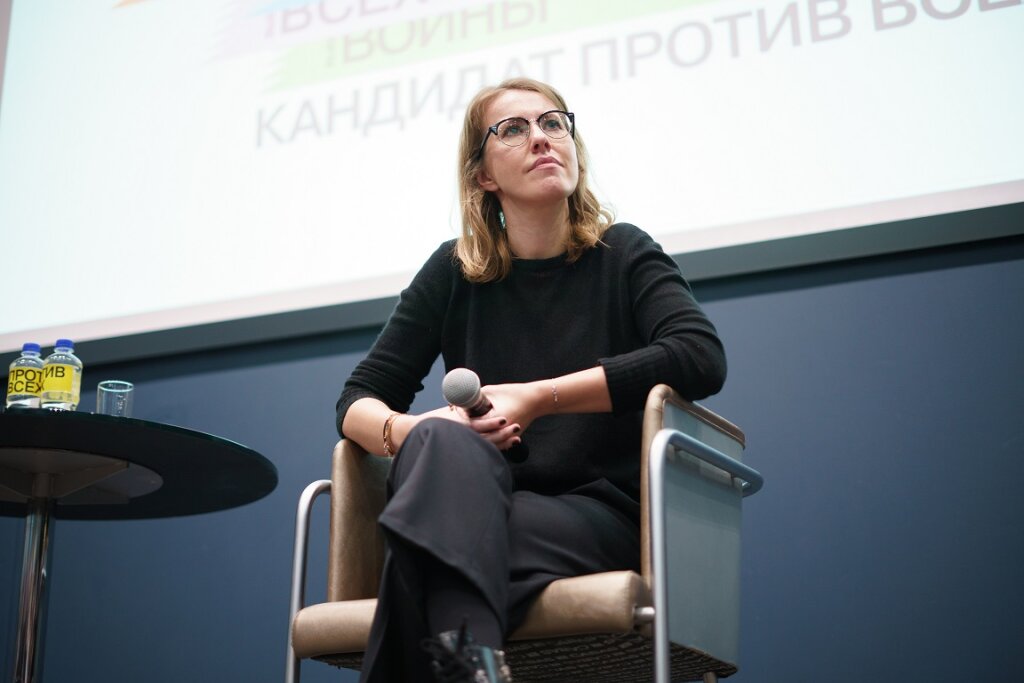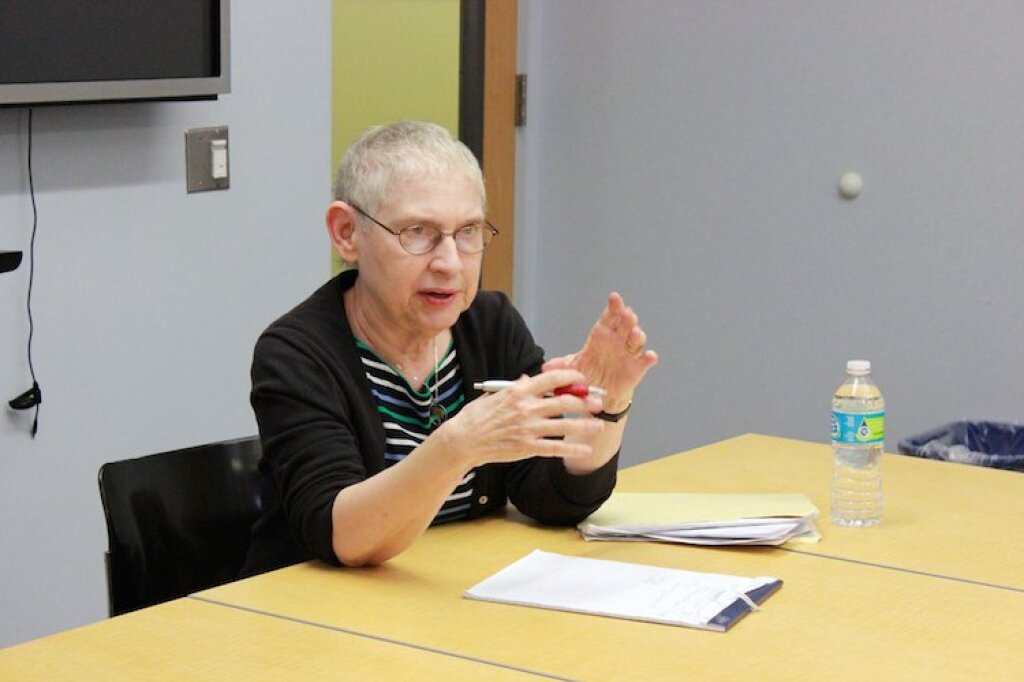Watch the event video here
Russian presidential candidate Ksenia Sobchak capped a US visit with a talk on February 8 at Columbia University, part of the New York City-Russian Public Policy Series jointly sponsored by New York University's Jordan Center for the Advanced Study of Russia and Columbia’s Harriman Institute.
The 36-year-old Sobchak is one of several candidates challenging incumbent Vladimir Putin in the upcoming March 18 election. Putin, who has dominated Russian politics since late 1999, is widely expected to win, which Sobchak readily concedes.
“Look, I think those elections cannot be important, nor for me, nor for anyone else, because it’s not, for me, a real election.” Sobchak said. “It’s a totally untransparent system. We don’t know how they count those percentages.”
Instead, Sobchak said that she sees her campaign as a way of introducing new ideas to the wider Russian public, which otherwise gets its information from state-controlled television.
“What I do, I fight for freedom of speech. I speak to millions of people on TV every day, which have never heard something like this before,” Sobchak said. “For them, it’s a real new information that can change their way of thinking.”
Sobchak presented a liberal political and economic platform, promising to implement strong guarantees on private ownership, root out corruption among Russia’s powerful state enterprises, reduce taxes in an effort to stimulate entrepreneurship, abolish restrictions on foreign investors, and free political prisoners. She cast Russia as a country of enormous potential, which Putin’s cronies are stifling with corrupt state contracts, undue pressure on small and medium-sized businesses, and ill-gotten overseas nest eggs.
She argued that Russia needs to reorient its economy toward underdeveloped coastal regions and floated creating special economic zones along Russia’s coasts to spur investment.
Sobchak also criticized Putin’s adoption of right-wing nationalist rhetoric and his portrayal of Russia as besieged by Western enemies. As president, she would seek rapprochement with the United States and European Union, trading Russian withdrawal from Ukraine’s Donbas conflict for sanctions relief. In response to an audience question, Sobchak even proposed that Russia could join Western institutions such as NATO and the European Union—if not as a formal member, then in close affiliation, citing Norway’s cosy relationship with the EU.
“We are not an Asian nation. We are Europeans, and that’s obvious. All our history is united,” Sobchak said. “You can’t keep in the backyard one of the biggest countries in the world. You can’t keep in the backyard a nuclear country. We have examples of what comes out of it—nothing good for anyone.”
Asked why she is traveling in the US mere weeks before the election, Sobchak replied that her visit is primarily directed at a Russian audience. By traveling to the United States, Sobchak hopes to show Russians that she is not afraid to speak with the “enemy” and defies accusations that she is consorting with Western paymasters.
Sobchak’s campaign, which is affiliated with Russia’s Civil Initiative Party, has attracted media attention in part because the candidate is already well known in Russia as a television journalist and media personality. Sobchak has also staked out positions that, though mainstream in the US, exist at the margins of Russian politics. These include acknowledging Crimea as part of Ukraine and granting equal rights to LGBT Russians.
While Sobchak spoke for nearly two hours on a range of subjects, she said that Russian television would only broadcast her most controversial statements. When an audience member asked her how to change Russian cultural attitudes toward LGBT people, Sobchak pointed to the television crews at the back of the room.
“We can talk about economy, about 20 percent only of private businesses in Russia,” Sobchak said. “We can talk about the future and about a parliamentary republic. But they are only waiting for this question to be discussed, and then they put it on central TV.”
Sobchak also fielded a question about her relationship with fellow opposition leader and anti-corruption campaigner Alexei Navalny, who has been barred from running in the election due to a corruption conviction. Navalny argues that authorities ginned up his conviction on political grounds.
While noting that she and Navalny had long been allied as protest leaders and anti-corruption activists, Sobchak criticized Navalny for calling for an election boycott after he was barred from entering the race. Even if Navalny himself cannot run, any opposition vote weakens Putin’s authority, Sobchak said.
“With men, it’s always like this in Russia. They always want to be the head of everything,” Sobchak said. “If we are a team, like in football, if one player—even if he’s the strongest one—if he’s taken off the field or there is a trauma, the play must go on.”
Sobchak had made political prisoners a cornerstone of her campaign. Shortly before her US trip, she traveled to Chechnya—not often a pitstop on Russian presidential campaigns—to highlight the plight of Oyub Titiev, head of the Chechen branch of the Russian human rights organization Memorial. After years of harassment, Titiev was arrested in January on charges of marijuana possession. Asked what her first act as president would be, Sobchak answered that she would free the country’s political prisoners.
“Russia is still a country with no rule of law, where any person can be put in prison just for his views,” Sobchak said. “Those people should be free, and this is the most important thing.”



